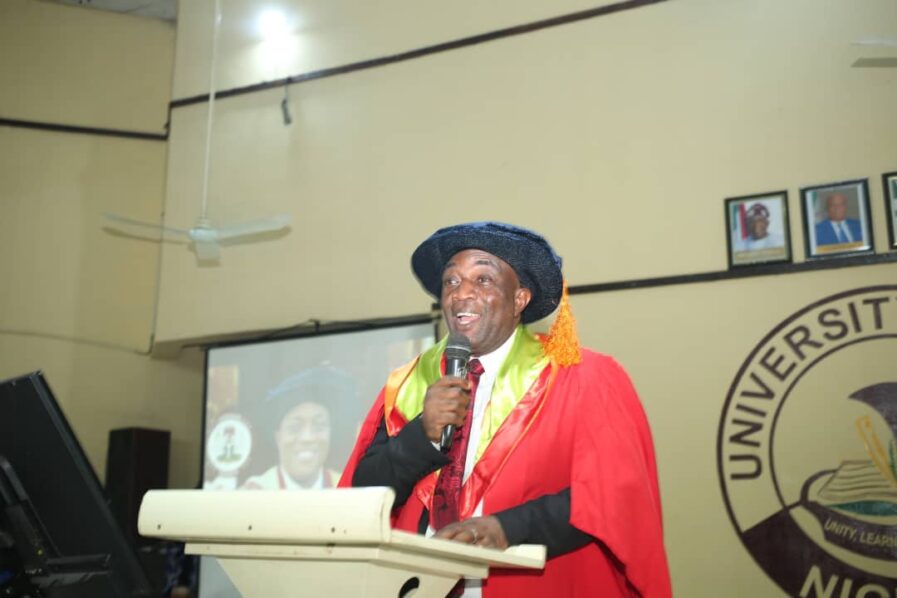
Senator Yunus Akintunde, who represents Oyo Central Senatorial District, has highlighted the need for a more balanced approach to energy distribution between urban and rural areas to foster Nigeria’s overall development.
Speaking at the second edition of the Prof Nyaudoh U. Ndaeyo Public Lecture at the University of Uyo, Akwa Ibom State, the lawmaker and expert in energy and environment stressed that prioritising urban centres over rural areas in energy allocation has stifled progress in the country’s less developed regions.
READ MORE: Anxiety as FG ‘commits’ states’ funds to special devt commissions
Akintunde, the first Nigerian to hold a PhD in energy and environment, called for policies that incentivise the clustering of agribusinesses in rural areas. He explained that such policies could encourage electricity companies to expand their operations into these underserved regions, thereby driving rural development.
Drawing on his interactions with key stakeholders such as the Rural Electrification Agency (REA) and the Energy Commission of Nigeria, Akintunde pointed out the main barriers to reducing energy poverty in rural areas. These include political interference, the use of sub-standard off-grid technology, corruption, and the high cost of infrastructure.
Disclosing that over 81 million of Nigeria’s over 206 million population lack adequate electricity access, with rural areas being the most affected, he explained that “politicians’ interfere with the orderly planning and running of rural electrification programmes. Most of the off-grid equipment imported into the country is sub-standard and not durable while most of the officials handling each of these phases sometimes exhibit overtly rent-seeking behaviours.”
READ MORE: Service disruption imminent as Kogi defies presidential order, seals base stations
He also listed the high cost of infrastructure, lack of investment as well as inadequate power generation and distribution infrastructure as some of the challenges of rural electrification in the country.
Revealing that energy resources in Nigeria is abundant, Akintunde who is the first Nigerian to bag a doctorate degree in energy and environment, said the country’s potential for renewable energy is 207,000 GWh solar and 50,800 GWh hydro.
“Renewable resources like solar, wind, biomass, hydro, wave or tidal while the non-renewable resources are crude oil, natural gas, coal,” he added.
Despite all the abundant natural resources, Akintunde, explained that Nigeria continues to face challenges in the energy sector.
READ MORE: Senate decries brain drain in education, urges increased allocation
“There is the problem of inadequate electricity generation— 12,522 MW installed capacity, 4,000 MW actual generation. There is also the issue of poor transmission infrastructure, and frequent blackouts. And we also battle insufficient investments and corruption in the energy sector,” he said.
“I like to tell this audience that energy poverty has different impact for each gender— women spend four to six hours daily collecting firewood. There is high exposure to lethal fumes in rural kitchens and energy access doesn’t always alleviate women’s burdens due to cultural norms,” he added.
As a way forward, Akintunde said that there should be institutional reforms to enhance energy consumption, adding that the current structure of the REA, which is presently centralised, should be localised.
READ MORE: Nigeria’s capital importation dips by 22.85% in three months
”Public policies aimed at improving both the quantity and quality of electricity services need to be backed by broader macroeconomic policies,” he said. “Policies need to incentivise the private sector to expand their operation to areas that are without electricity to enhance access and affordability. And focus should also be on the adoption and promotion of renewable energy technologies. Reforms and development priorities must be tailored to encourage alternative funding strategies for rural electrification programmes.
“Moreover, awareness promotion on clean and efficient energy should be pursued as there is a need to increase investment in education in general and energy usage. There is also a need to employ alternative energy supplies such as renewable energy sources to reduce the energy inconveniences of the citizens in such rural communities. Policies should target the development of mobile infrastructure, microloans and strengthen payment solutions that are suitable for low-income individuals. The government in partnership with multilateral institutions could establish a fund where innovators could access finance to scale up their idea, as it pertains to off-grid power generation.
“To ensure sustainability, all the major stakeholders must be engaged and the capacity of regulatory and energy training centres needs to be strengthened to enable the shift to renewables. Energy policy should also be developed using a bottom-up approach that prioritizes the people’s most pressing needs. The government needs to provide an appropriate legal framework to guide rural electrification and also provide climate change legislation to guide its low-carbon development,” the All Progressives Congress chieftain added.






